A decade after its establishment, the Israeli Young Academy plays a central role in the academic system. Five of the chairmen who served during the decade summarize in an interview with "Egret" its achievements ("a living and kicking organization with a reputation", "saved careers during the corona epidemic"), its uniqueness ("work shoulder to shoulder of researchers from different fields and different institutions for colleagues" ), and how its membership changes the perception of those who will play key roles in the academy in the future ("creating a network based on trust and friendship that will last for many years to come")
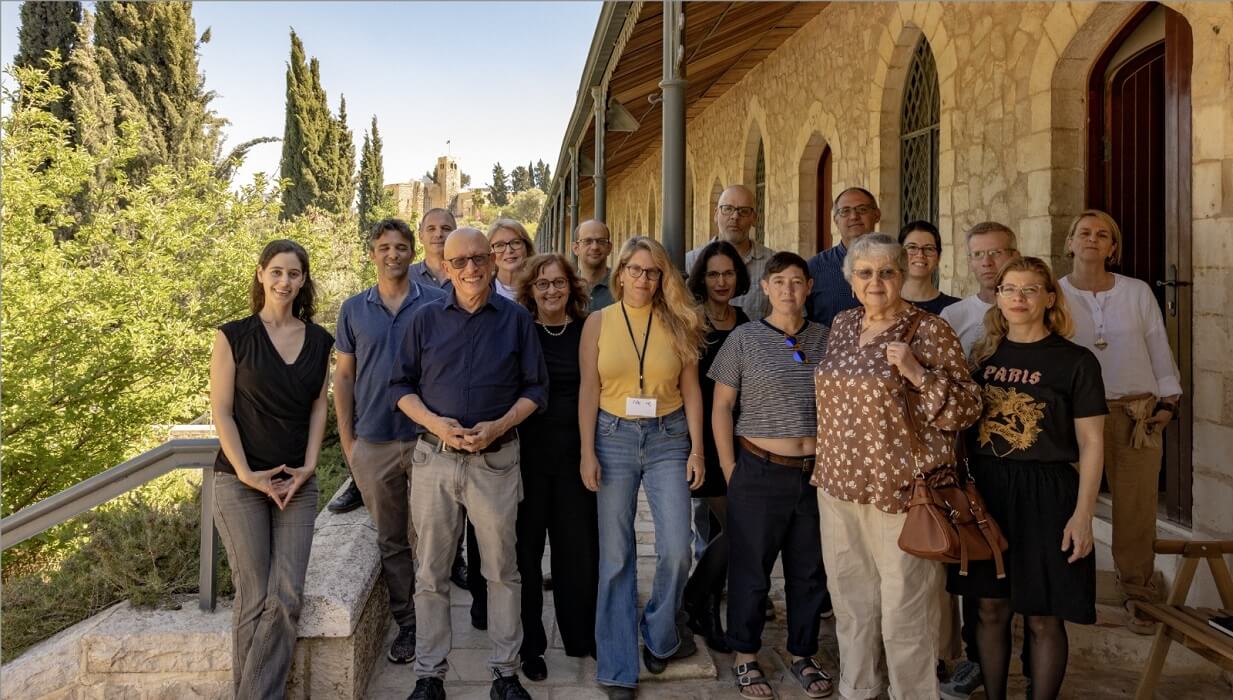
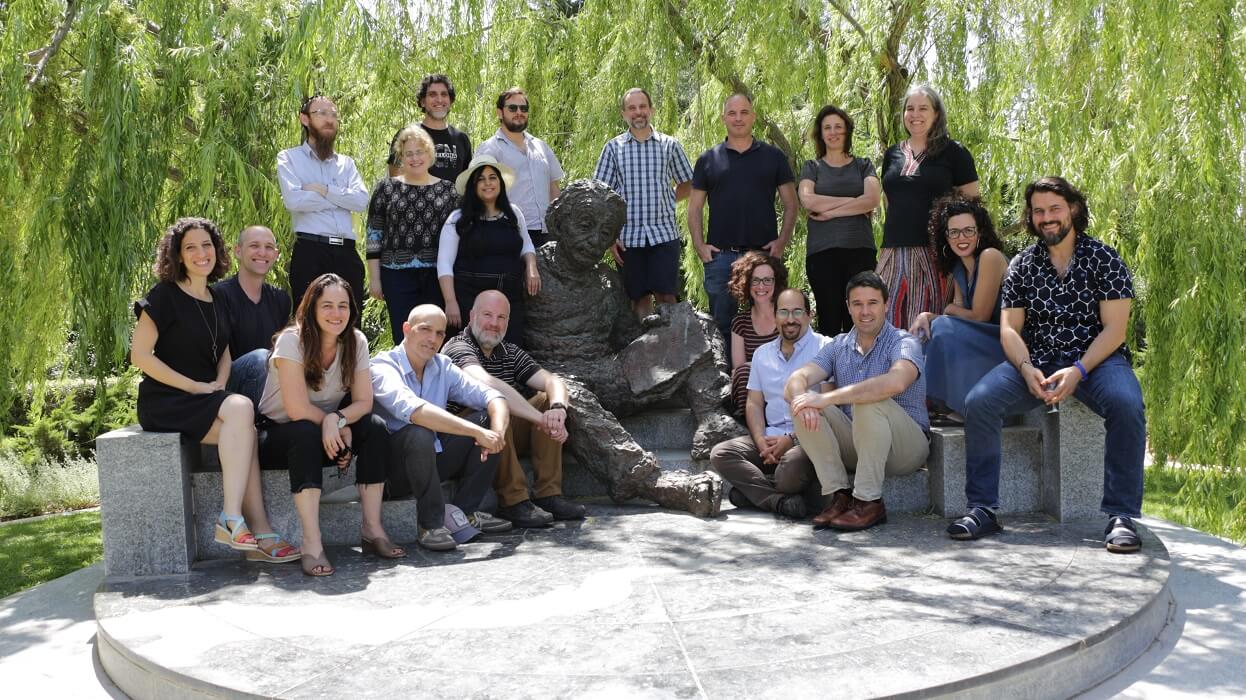
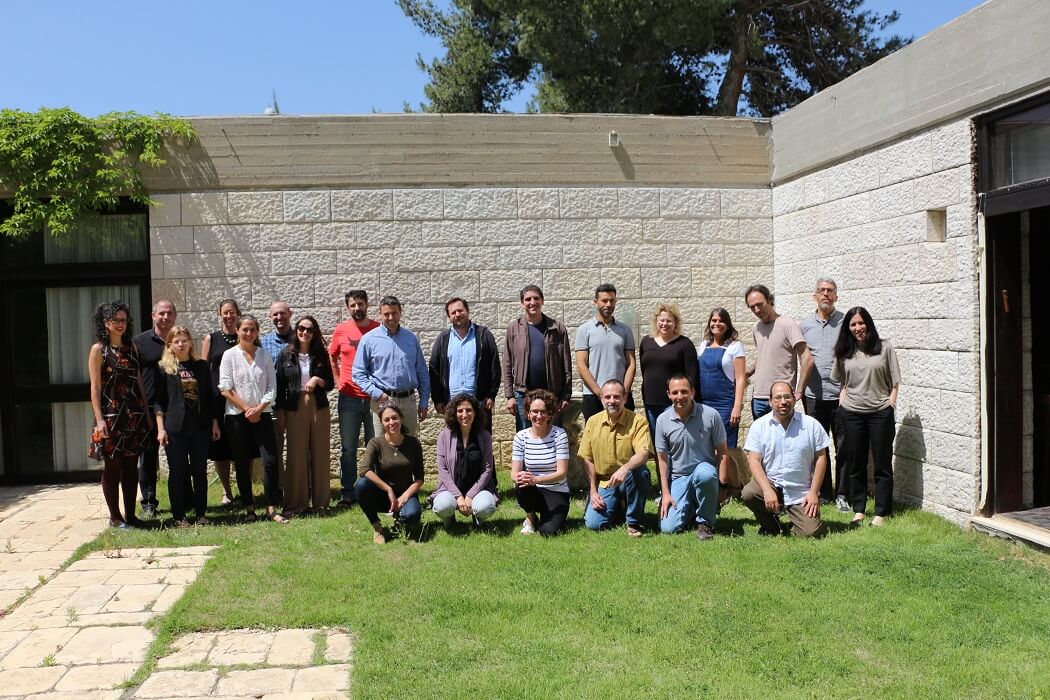
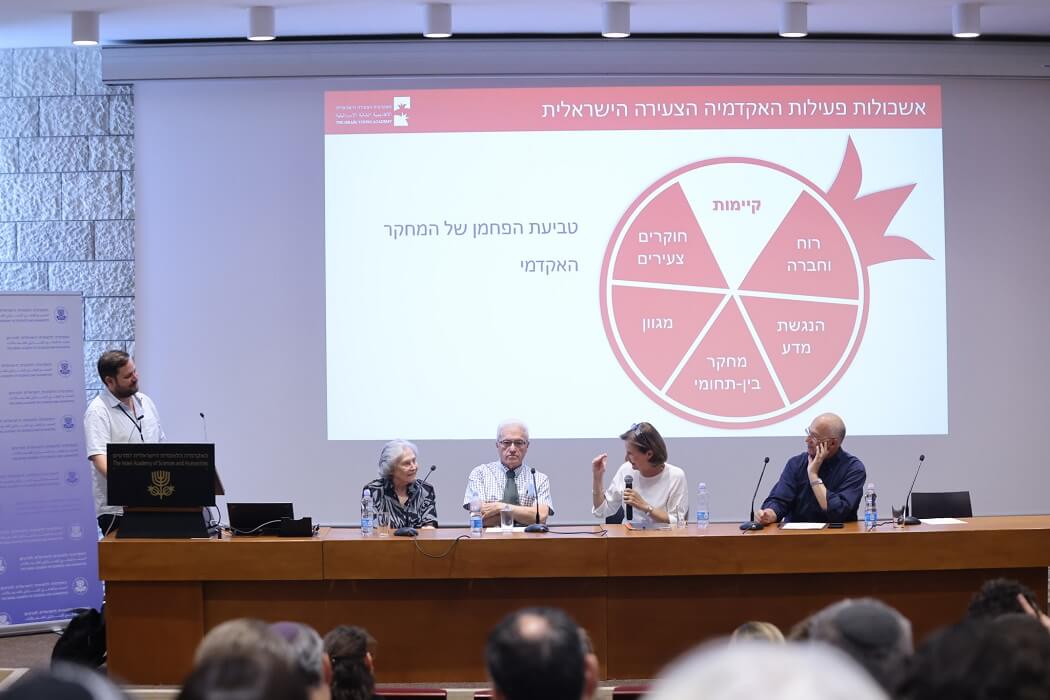
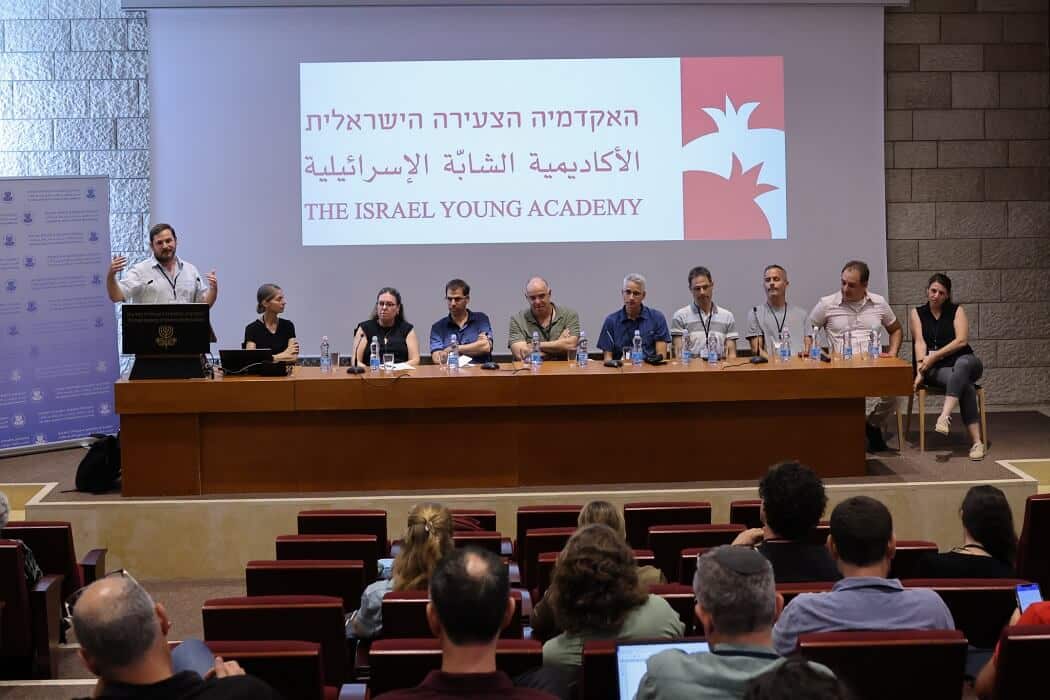
A small news item published in the Israeli media in November 2012 heralded the establishment of a "young science academy... whose members are first-class outstanding scientists who stand out in their fields". The new body was established at the initiative of and under the auspices of the Israel National Academy of Sciences, and its president at the time, Prof. Ruth Arnon, welcomed the joining of "a growing trend in the world of young academic establishments." 26 outstanding researchers, all under the age of 45, were chosen to be the first cohort of the Israeli Young Academy, for a four-year term.
Today, a decade later, the number of serving and graduated members is already approaching a hundred. During this decade, the young academy managed to establish its position as a prestigious body where young Israeli scientists from all fields of academic research work together to promote topics that are at the top of the agenda for researchers at the beginning of their careers. After a wide variety of public and intra-academic initiatives, dozens of conferences and seminars, activities for gender equality and equal opportunities, and after one corona epidemic, which helped illustrate its critical importance, the young academy became the clear voice of young researchers in Israel.
"This was exactly our goal," says Prof. Yael Hanin, who was elected to the first round of members of the young academy and served as its first chairwoman in 2012-2014. "We wanted to give a voice to young researchers, who before this were not really heard in the academic system." According to Prof. Hanin, the greatest achievement of the young academy is the very fact that it has been able to establish itself since its establishment. "It is a body that stands well on its feet today. whose energy and presence are very tangible in the Israeli academic system. It does not rise and die, but lives and kicks. The young academy has an excellent reputation; The best researchers are trying to be admitted to her. She is a success story."
The Israeli Young Academy was established to develop the capacity of young scientists in Israel, to express their needs, to strengthen the relationship between the academic system and the policy makers and to promote research in Israel. "We learned a lot from the experience of fellow young academies, especially from those in Germany and the Netherlands," recalls Prof. Hanin.
The first cycle of members of the Academy paved the way for the following cycles and the existing mechanism, where up to ten new members are chosen every year, with scientific excellence added as a determining criterion, demonstrating a commitment to contribute to the Academy in Israel through voluntary activity. "The young academy is looking for candidates to combine excellence in research with a 'drive' to act outside of its limited framework," says Prof. Hanin. The researchers are selected from various academic institutions and from all fields - the natural sciences, society and the humanities. The composition of the young academy is diverse, both in terms of the research fields of its members and in terms of the representation of the population and the scientific community.
Legitimization begins with the Academy of Sciences
It is agreed upon by all the chairmen of the Young Academy who have served over the years and who were interviewed by "Letter" as part of the tenth anniversary of its establishment, that the sponsorship and backing given by the National Academy of Sciences was a key factor in the success of the Young Academy. "It not only helped us, but was critical," notes Prof. Hanin. "The sponsorship of the Academy of Sciences actually gave our project validity. We didn't have to fight for our branding, it was 'Bilt Inn'." "Our legitimacy begins first of all with the Academy of Sciences," says Prof. Avi Zadok, who served as the chairman of the Young Academy in 2019-2020. "We have academic excellence that is handed down to us from the top academy."
But it was the members of the young academy themselves who poured content into the established framework. In the ten years of activity that have passed since its establishment, the young academy has engaged in a wide spectrum of activities, from representing young scientists before decision-makers in the academic and political system to public scientific education in the form of lectures in schools in the periphery and making science accessible. The young academy operated within the academic system through initiatives for conferences that contribute to beginning researchers ("Practical tools for integrating into the academic world" or "Workshop for post-doctoral students in exact sciences and engineering"), focusing on promoting the humanities, training researchers in communication skills and even special "retreats" designed to introduce and enrich Researchers from different fields and to provide inspiration for researchers ("academics"). But she also operated outside the system, for example: she was a partner in presenting an exhibition of photographs in Israel showing the achievements of Israeli science, prepared policy documents on the topic of digital humanities and the promotion of humanities in general, and initiated a series of lectures in the social and geographic periphery, open to all, on the subject of climate change. In the field of equality, the young academy assisted in making higher education accessible to Arab and ultra-Orthodox society and in increasing the presence of female researchers in the fields of exact sciences ("firsts in science"), and is credited with many other activities for gender equality.
Overflow of needs and problems from the field
In addition to these activities, the young academy leads the "Young Scholars Survey", which is one of its main areas of work. The survey is a comprehensive effort designed to provide a detailed situational picture regarding faculty members at the beginning of their career in the Israeli academy. "In my opinion, this is one of the most significant enterprises of the Young Academy," says Prof. Haim Beidenkopf, who served as the Chairman of the Young Academy in 2021-2022. This is a professional survey covering about 1,000 young researchers in Israel, which presents their situation, the challenges they face Organizational aspects such as absorption in institutions as well as research. "The survey reflects at the national and institutional level the challenges of young researchers in Israel, and such a thing did not exist before the young academy," says Prof. Beidenkopf.
The survey began about two years after the establishment of the young academy. It is done once for a certain period, and next year will be the third time it is done. In the years following its publication, the representatives of the young academy present its main conclusions to the heads of academic institutions and key people in the system and also share them with the public. "Representatives of the Young Academy are actually making a tour of all the institutions, and we have an open door at all of them. As we see by comparing the current survey to the previous one, it undoubtedly helps to change things in the field," says Prof. Beidenkopf.
"The survey actually improves the possibility of young group leaders in the Israeli academy to carry out optimal scientific work, and this is a direct result of processes driven by its findings," says Prof. Ron Milo, who served as chairman of the young academy in 2015-2017. In addition to this, according to him , the very volunteer work in the young academy and the engagement with the needs of colleagues from all over the academic system "strengthen and institutionalize the perception and realization of the contribution to society as an essential part of the role of successful academics".
"The ability to flood needs and problems from the field and start an activity is one of the significant achievements of the young academy," says Prof. Tami Giger, who served as the head of the academy in 2020-2021. Young people and up to systemic problems that require change." According to her, in many cases the exposure of the policy makers to the clear needs "creates a systemic impact in itself". "I see the young academy as a mechanism that reflects the academy and its needs, comes from the field and can show things to decision makers," she says.
"In many decision-making forums, naturally, researchers at the beginning of their career are less represented," explains Prof. Beidenkopf. "The young academy responded to this need. She participates a lot in current academic intersections, and in an appropriate way in my opinion, since she reflects the future generation of scientists."
Saving researchers' careers
The ongoing activities and reputation of the young academy played a key role at the beginning of 2020, with the outbreak of the Corona epidemic. For many in the academic system, the body's mobilization to help young researchers with the outbreak of the epidemic was considered one of the key moments in its evolution. "At the very beginning of the epidemic, we realized that the voice of post-doctoral students, for example, was not heard at all in the Israeli academy," recalled Prof. Beidenkopf, "but it was clear that the crisis that is developing with the closure of institutions in the world and the relatively small commitment towards them is a difficult situation. The result was the organization of an online conference that brought together no less than 450 Israeli post-doctoral students who are abroad with all the heads of the Israeli academy. This event had a significant impact on their representation during the Corona period. After that, we continued the activity with a flash survey that explored the challenges of young researchers during the Corona virus, and we shared the results with the institutions."
Prof. Avi Zadok, who served as chairman of the Young Academy at the beginning of the Corona crisis, also agrees that this is an important ad hoc activity of the Young Academy. "We were talking about a lot of researchers, who were already abroad or were about to go for further studies, and were faced with a broken trough. The mobilization in the Israeli system was amazing, and we were able to help it understand the predicament and also offer solutions. This led to emergency scholarships (dozens of scholarships already provided to post-doctoral students as part of the ad hoc program of the National Academy) and flexibility in previously very tough courses. It saved researchers' careers."
A quality network based on trust and friendship
The chairmen all note the unique mix of the young academy, where researchers from completely different research fields and different institutions work shoulder to shoulder to achieve common goals for young academics in the system. "The layer of researchers who are members of the young academy is unique, because on the one hand it includes sufficiently experienced researchers who have already known the system for several years—and also have the power to act within it—and on the other hand, they are still relatively young and remember the difficulties of the beginning," says Prof. Giger. "In any case, they are still motivated to try to improve the system."
Prof. Zadok points to the unique dynamic that develops during the years of membership in the young academy. "The uniqueness of the young academy is that people from all institutions and all fields work together continuously for four years. There are no such forums in the academic system. Each of us is often in contact with the professional community around him. This is both infringing and actually gives us maximum access, because practically every academic institution has a representative of the young academy."
According to the chairmen, the personal contribution of the members of the Young Academy to its members will be measured over decades and not just in the years of office. "We work together, those who come from the fields of natural sciences and those who come from the fields of humanities, and are exposed, among other things, to the essential differences between the two fields in the Israeli academy, in almost every aspect," says Prof. Zadok. "It is necessary in my view that those who will be the next generation of leadership of the Israeli academy be exposed to these differences, that researchers from the natural sciences be aware of the challenges of their colleagues from the humanities - and vice versa." Already today, there are graduates of the young academy who have been appointed to key positions, and they are serving as deans, as vice presidents of academic institutions and also in senior positions in Bot.
"The activity in the Young Academy actually creates a quality network that is based on trust and friendship," says Prof. Milo, "a network that crosses the academic system and enables a variety of activities, initiatives and the exchange of information during membership in the Young Academy - and many years later." "Our exposure to researchers from different disciplines and the exposure to the entire academic system," adds Prof. Giger, "means that we will emerge as researchers with a much broader vision and a better understanding of academia and society in Israel. After a decade of activity, it is already clear that many members hold key positions in the Israeli academy, and with the vision they have developed in the young academy, I have no doubt that they will be better in their positions."
More information on the website The Israeli Young Academy
And on the site The Israeli National Academy of Sciences
